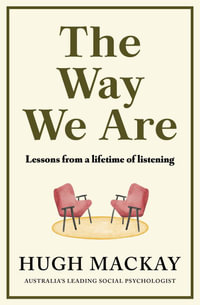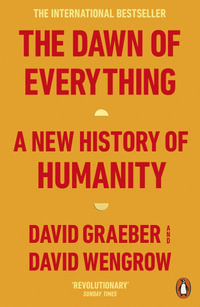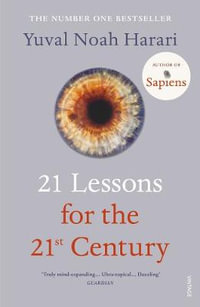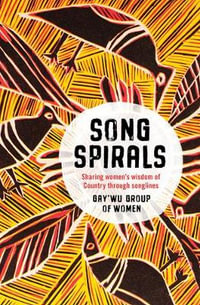In this enlightening and insightful monograph, John B. Hatch analyzes various public discourses that have attempted to address the racialized legacy of slavery, from West Africa to the United States, and in doing so, proposes a rhetorical theory of reconciliation. Recognizing the impact both of religious traditions and modern social values on the dialogue of reconciliation, Hatch examines these influences in tandem with contemporary critical race theory. Hatch explores the social-psychological and ethical challenges of racial reconciliation in light of work by Mark McPhail, Kenneth Burke, Paul Ricoeur, and others. He then develops his own framework for understanding reconciliation-both as the recovery of a coherent ethical grammar and as a process of rhetorical interaction and hermeneutic reorientation through apology, forgiveness, reparations, symbolic healing, and related genres of reparative action. What emerges from this work is a profound vision for the prospects of meaningful redress and reconciliation in American race relations.
Industry Reviews
Hatch has written a definitive work on the rhetoric of racial reconciliation that will have a major impact on both the field of communication and the public conversation about race and reconciliation in this country. He has made an important and lasting contribution to that conversation, and has established himself as one of the few European American scholars whose understanding of race and reconciliation transcends the abstractions of rhetorical analysis and addresses the concrete realities of white racial recovery and resistance. -- Mark Lawrence McPhail, Southern Methodist University
A timely and hopeful meditation on the dynamics and promise of racial reconciliation. With its dialogic account of reconciliation, this book sheds crucial light on the nature of racism's violence, the complexity of redressing racial injustice, and how we might begin to speak and hear those words of truth, grace, and unity that can move us beyond the troubled contemporary politics of apology to a dialogue that both expresses and deepens our commitment to ethical life. -- Erik Doxtader, University of South Carolina and Institute for Justice and Reconciliation in Cape Town, South Africa
In this thorough and highly significant work analyzing recent efforts toward racial reconciliation, Hatch accounts for an impressive and profound body of discourse as he avoids offering formulaic or simplistic answers as to how reconciliation may be achieved. Coming from a scholar known for his awareness of the subtleties and his attention to the nuances surrounding discourse about race and reconciliation, it is an incisive, comprehensive, and ultimately moving study of what is surely one of the most important-and controversial-topics of our time. Scholarly as well as sensitive, Race and Reconciliation is ultimately thoughtful, forward-thinking, affirming, and hopeful. -- Jacqueline Bacon, author of Freedom's Journal: The First African American Newspaper and The Humblest May Stand Forth: Rhetoric, Empowerment, and A
Hatch provides a cogent and thoughtful synthesis of thinking to date on the rhetoric of reconciliation.... Love, without question, is a powerful force in reconciliation, and the challenge to scholars will be to work from Hatch's foundational study to develop a host of approaches to racial reconciliation that do not presume love or a concern for the Other. * Discourse & Society *
In a fluid, engrossing tome, Hatch blends communication theories and their philosophical underpinnings, to recent global and national events about which many readers will likely be unaware, to underscore the processes by which racial reconciliation has at last found hope and promise in the United States.... Race and Reconciliation is written for communication scholars and academics of other disciplines studying the democratic possibilities for peace amid violence. It is a book that speaks as well to political leaders and community activists working to advance social justice to remedy the disparities among racial groups that continue to grow despite well intended social services and remediation efforts that have fallen short of making adequate progress.... The theoretical arguments are compelling.... That a rhetoric of reconciliation might open a door previously closed tight, however, is testimony to the power of communication to draw from its ethical foundation and discourse alternatives to change the frame and understanding of history so that we may consider the resent anew with a greater care for social justice to those for whom it has long been denied. * Argumentation and Advocacy *
Race and Reconciliation offers a compelling and comprehensive theoretical framework for addressing not only the structural and economic elements of racism - unfair laws or inadequate education - but also the 'unconfessed guilt and shame, unforgiven wrongs, unhealed emotional wounds, and incompletely redressed injustices,' phenomena that 'persist through generations as a sort of spiritual connection of psychic legacy that is not easily shaken'.... Hatch's book is well-written, with language that movingly conveys the urgency of his topic. The analysis of the Benin conference and subsequent official apologies in the United States is particularly compelling. The theoretical section is dense and draws upon a remarkable array of literature.... Hatch's work should be of great interest to scholars concerned with race and society. Much more, it offers a potential framework through which local and national leaders might address the lingering psychic wounds and material injustices caused by this most crucial part of our nation's history. * Rhetoric & Public Affairs *
























